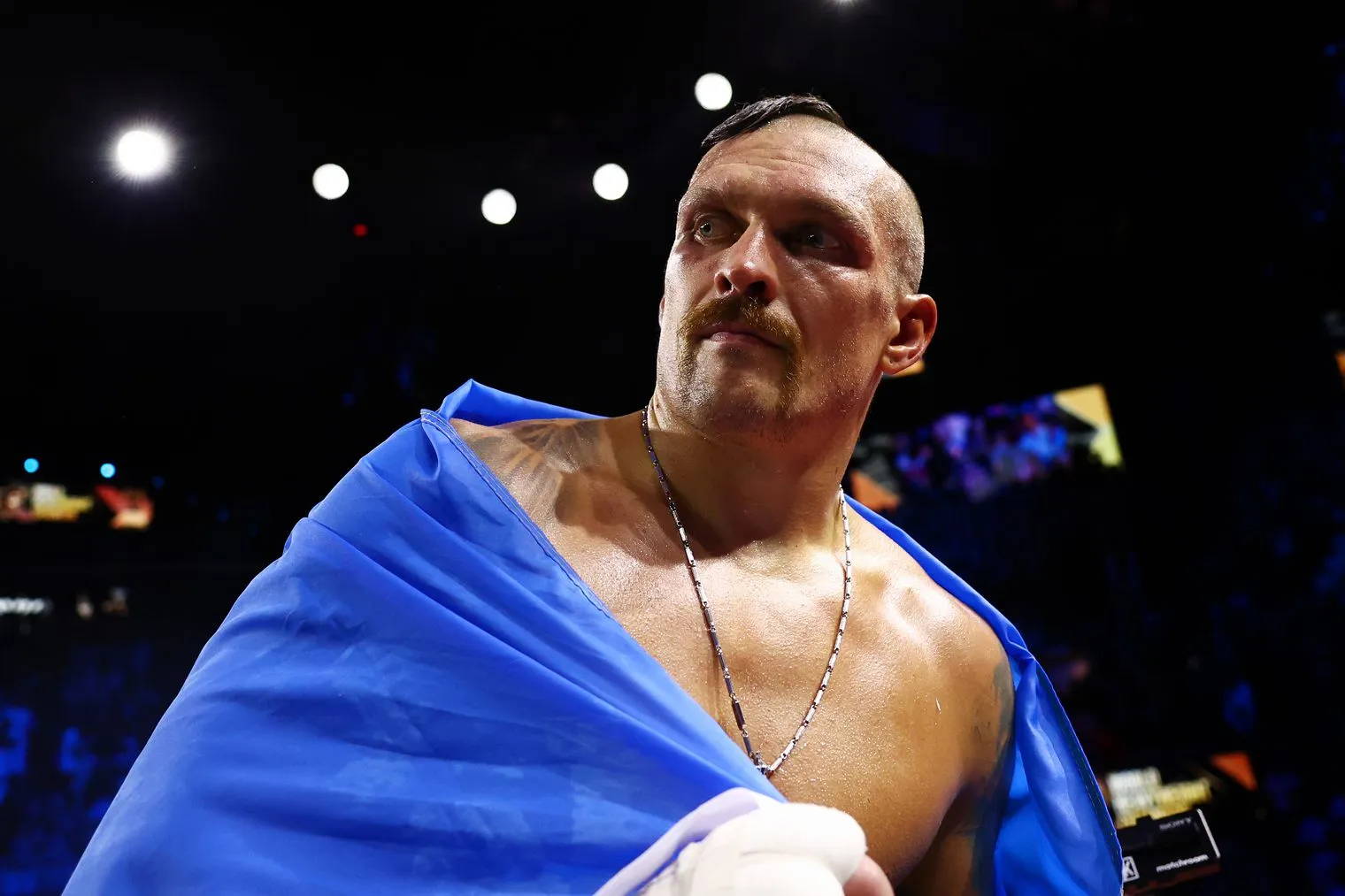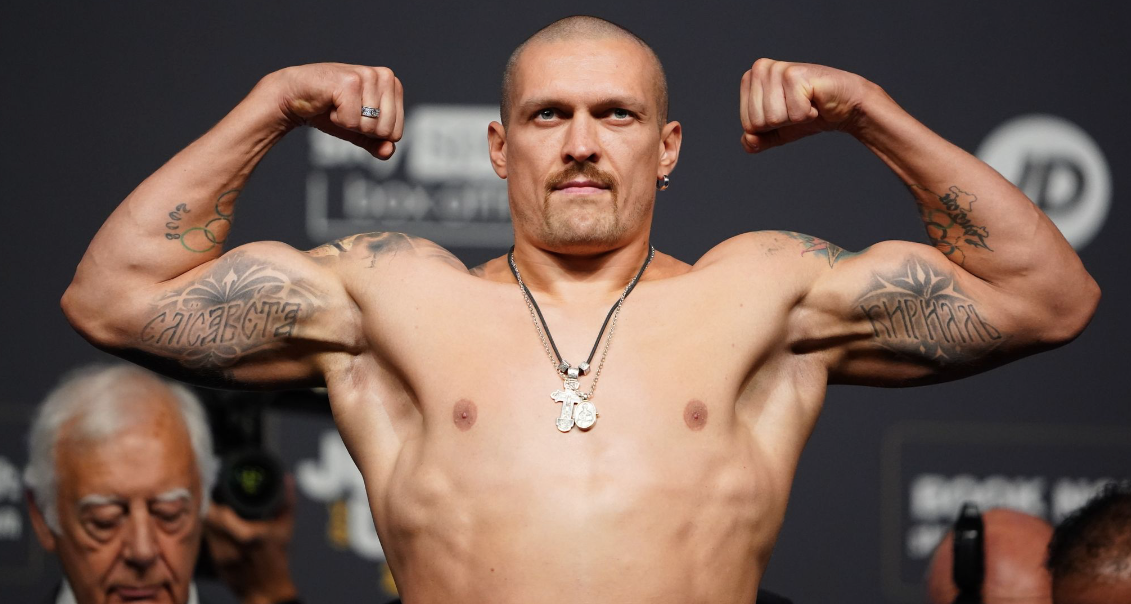
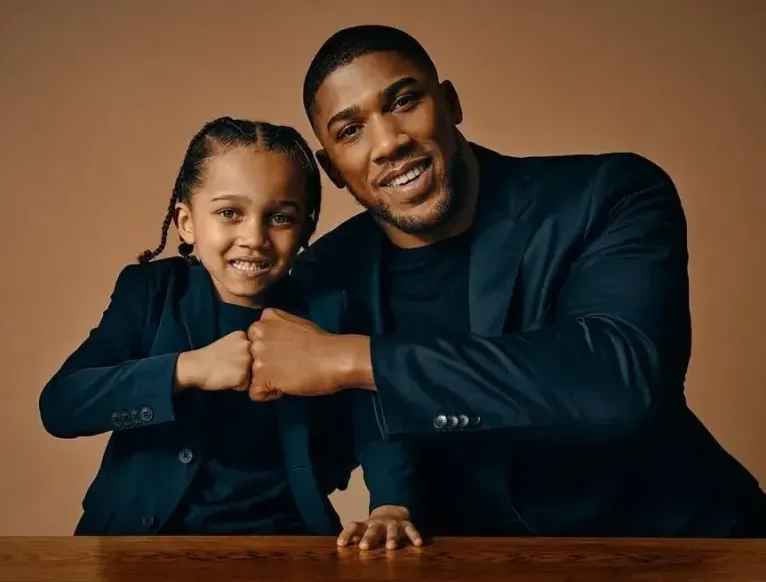
Why Boxing King Anthony Joshua Absolutely Does Not Want His Son to Pursue the Ring, Shocking Secret Revealed!
Anthony Joshua, the British boxing icon and former two-time world heavyweight champion, has revealed his deep reservations about letting his eight-year-old son, Joseph “JJ” Joshua, follow in his footsteps into the dangerous and demanding world of professional boxing. In a heartfelt interview on Desert Island Discs, Joshua shared candid insights into fatherhood, legacy, and the future he envisions for his son—a future far removed from the brutal ring that defined his own career.
For a man who made his name delivering knockouts and claiming world titles, Joshua’s message is refreshingly grounded in humility and concern. His hope for JJ is not one of sports accolades but of financial literacy, education, and stability. For Joshua, who has weathered the highs and lows of the sport, the path to greatness doesn’t necessarily need to be laced with punches.
Anthony Joshua’s reflections on the dangers of boxing
The sweet science of boxing is often glamorized by highlight reels and championship belts, but Anthony Joshua knows firsthand that it comes with significant costs. With a career marked by spectacular wins, heartbreaking losses, and relentless pressure, Joshua understands the mental and physical toll the sport takes on those who choose it.
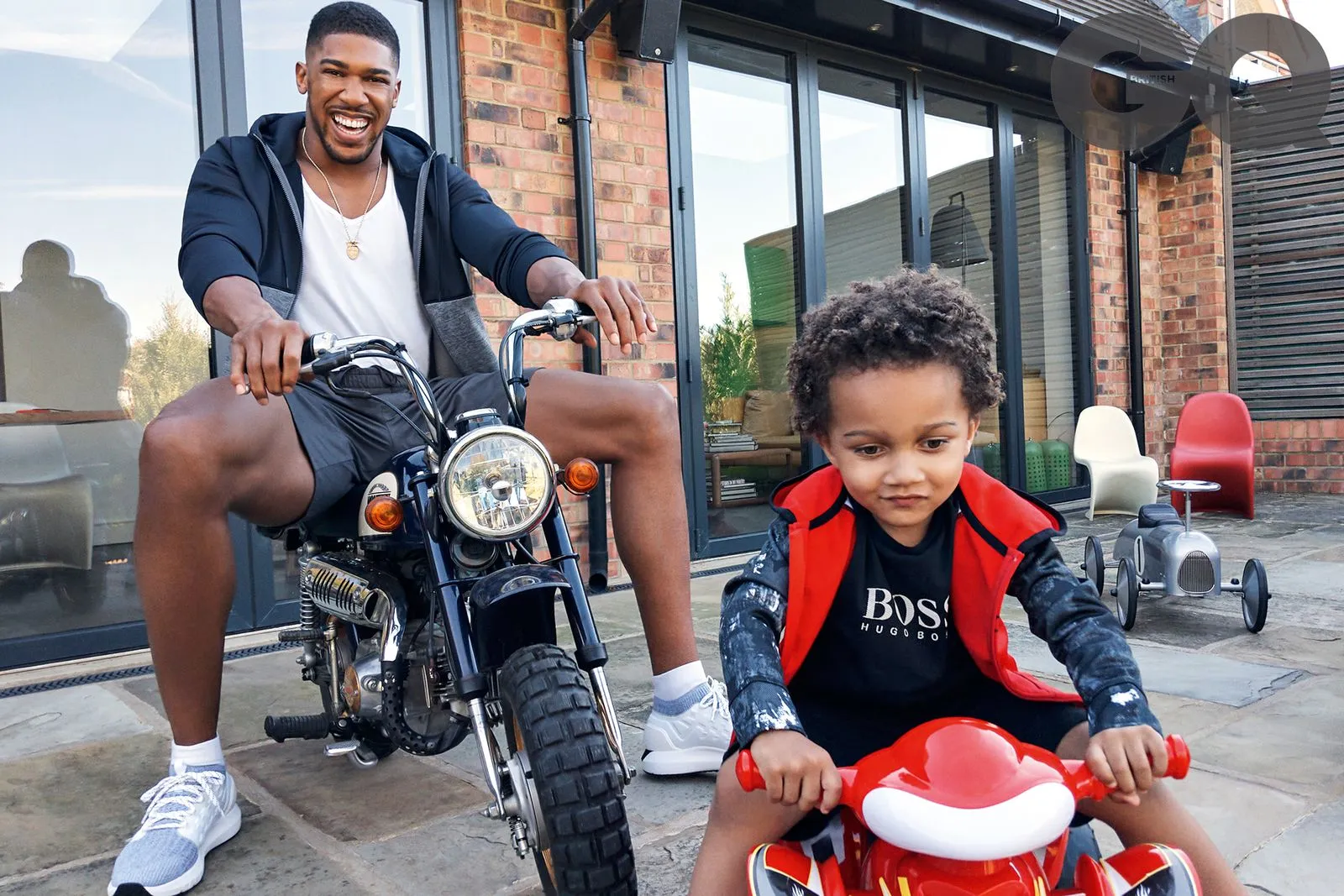
In his interview, Joshua admitted, “I don’t think it’s a wise decision [for JJ to follow in my footsteps].” This wasn’t an offhand comment. It was the sentiment of a father who has endured enough pain to know better than to push his child into the same fire. While JJ might admire his father’s discipline and fame, Joshua emphasized that he wants his son to see him simply as “a dad”—not a fighter or a hero who must be emulated in the ring.
Boxing may have given Joshua a platform and a future, but he’s acutely aware of its inherent risks—from concussions to career-ending injuries, and the emotional volatility that shadows even the most celebrated champions.
A focus on business over boxing
Rather than donning gloves and stepping into the ring, Joshua hopes his son will focus on business and accounting. “If I could choose for him, I’d have him look into accounting, because I think understanding numbers is a good thing,” Joshua said. “From there, you can become an entrepreneur and invest in business. I want him to focus on business.”
This vision aligns with Joshua’s post-boxing ambitions. While still active in the sport, Joshua has already dipped into the world of business, branding, and entrepreneurship. He’s signed massive deals with sponsors, launched his own clothing and fitness brands, and built a solid foundation for life after boxing. Joshua clearly values knowledge, strategy, and calculated risk—traits that have made him a successful businessman just as much as a fighter.
His approach highlights a growing shift among athletes who are now thinking generationally, aiming to break cycles of hardship by equipping their children with tools beyond athletic prowess. Financial literacy and business acumen are cornerstones of this strategy.
JJ, by all accounts, understands the divide between his father’s fame and the responsibilities of everyday life. “He’s great,” Joshua said about his son. “He gets it. He understands boxing. He knows I’m just a dad.”
The emotional weight of legacy in boxing families
In many combat sports families, there is pressure for children to carry on the torch. From Julio César Chávez Jr. to Nico Ali Walsh, history is full of sons and daughters following their legendary parents into the ring. But Anthony Joshua is setting a different tone—one that prioritizes individual choice, emotional well-being, and personal fulfillment over legacy.
There’s something quietly radical about that.
At just eight years old, JJ would be eligible to start sparring by age nine and potentially start competitive boxing soon after. But Joshua appears determined not to let that happen—at least not now. For him, fatherhood means protection, even if it goes against the crowd’s expectation or the family name.
While some fans might have fantasized about a future “JJ Joshua” dominating the heavyweight division in the 2040s, Joshua’s priority is preserving his son’s innocence and choices, not cashing in on a legacy.
And that’s worth applauding.
Anthony Joshua’s own upbringing shapes his parenting values
Born in Watford to Nigerian parents, Anthony Joshua’s rise wasn’t smooth. He faced early challenges, brushes with the law, and setbacks that could have ended his story long before the world ever heard his name. Boxing was his way out—a tool for discipline, growth, and identity.
But Joshua doesn’t want his son to be forced to use boxing as an escape. He wants JJ to grow up with options. “Boxing was my route. But it doesn’t have to be his,” Joshua essentially conveyed. And it’s clear he is doing everything possible to ensure that JJ’s life will be built on stability and choice rather than necessity and struggle.
Unlike AJ, JJ is growing up with a father who has been through the storm and come out wiser. That life experience, that perspective, is exactly what makes Joshua’s message so powerful. He isn’t just trying to protect his son from punches—he’s protecting him from repeating cycles of hardship.
Joshua’s own career still holds weight in the boxing world
Though he’s currently recovering from a loss to Daniel Dubois, Anthony Joshua remains a huge name in heavyweight boxing. Promoter Eddie Hearn still believes that a showdown between Joshua and Tyson Fury could be arranged through a simple text message, highlighting AJ’s relevance in the sport. But even as speculation swirls about possible comebacks or final mega-fights, Joshua is clearly focused on life after boxing.
While others obsess over championship belts, AJ seems to have his eyes fixed on being a father, an entrepreneur, and a mentor. The humility and emotional growth he shows in recent interviews point to a man who’s evolved beyond the need to prove himself through violence.
Even in the twilight of his boxing career, Joshua still packs stadiums, commands media attention, and inspires young fighters across the globe. But what’s truly inspiring is how grounded he remains in his role as a dad.
The broader impact of Joshua’s parenting philosophy
In an era where masculinity is often tied to toughness, dominance, and legacy, Anthony Joshua is championing a new kind of strength—one rooted in emotional intelligence, responsibility, and foresight. He’s not just teaching his son how to win fights, but how to win at life.
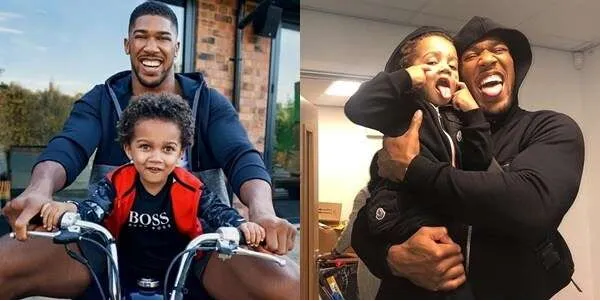
And this approach might well influence a new generation of athletes who rethink how they guide their children. If more sports figures spoke as candidly and responsibly as Joshua has, perhaps we’d see fewer young athletes being pushed into risky careers just to uphold a family name.
Boxing may still call, but AJ chooses wisdom over glory
There’s no doubt that JJ will have moments when he wants to be like his dad. The lure of fame, the adrenaline of the ring, the crowd chanting your name—it’s intoxicating. But Anthony Joshua’s message is clear: that glory isn’t worth the price if it costs safety, peace of mind, or freedom of choice.
Joshua has already proven himself a warrior. Now he’s proving himself a wise father.
Final thoughts: A new legacy for Anthony Joshua
Anthony Joshua’s story isn’t just about heavyweight titles and rivalries. It’s about resilience, evolution, and redefining what legacy means. He could have easily set up JJ to be “the next Joshua,” building a narrative and media campaign around a second-generation boxing phenom.
But instead, he chose something rarer: he chose to be protective, honest, and forward-thinking.
In doing so, he might not just be shaping his son’s future—he might be changing the narrative of what it means to be a sports icon and a dad.








